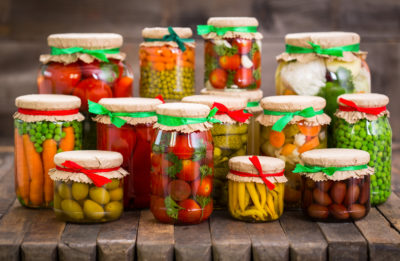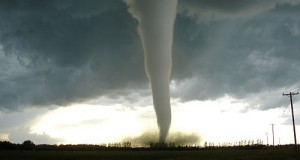
Taking inventory gives me the chance to see what I actually have. Yet, it also gives me the chance to check the condition of everything in my prepping stockpile as well.
Many people have special things they do at the beginning of the year. For me, that means taking inventory in more ways than one. That’s different than most ideas about the New Year, which are more likely to be about New Year’s Resolutions than anything else. I gave up on those back in my teen years, as I found that like many people I never kept those resolutions. So, while I have goals for my life, they aren’t in the form of New Year’s Resolutions.
But I find the beginning of the year a good time for many other things in life. The chief concern amongst them is taking stock of what has happened in the last year. I figure if I can manage to go forward at least a little bit each year, then I’m at least going in the right direction. I may not be going as fast as I want, but at least I’m not going backward.
Reviewing my year isn’t the only thing I do at the beginning of the year. I also try to plan out my goals for that year. I’m talking about things like, “I’m going to build a chicken coop and start raising chickens this year.” I don’t always get all my goals done, but if I don’t have them, I won’t get anything done.
Managing Your Prepping Stockpile: A Good Time To Keep Track
But there’s one other important thing I try to make sure I do every January. As part of taking stock in where I am, I take an inventory of my preps. Sadly, something seems to happen to my inventory sheets during the year which throws them off. I either have some really big mice around, or I’ve got family members who eat the food that’s supposed to be part of our prepping stockpile without notifying anyone of what they’ve done. Considering I have three grown children who all cook, that’s an easy problem to have.
Taking inventory gives me the chance to see what I actually have. Yet, it also gives me the chance to check the condition of everything in my stockpile as well. I’ve found through the years that not everything manages to stay good in storage. Even things that I expect to stay good, like canned goods, don’t always keep well.
By and large, canned goods will stay good for twenty years or more. I’ve read of cases where they opened and tested canned goods that were even 60, 80, or 100 years old. While they might have been slightly discolored and some of the nutrients may have oxidized, those canned goods were still perfectly edible. So, with that being the case, how can I have canned goods that go bad?
Here’s the thing: for canning to last that long, it requires that everything go perfectly in the canning process. If one thing goes wrong, it’s toast (actually, it’s a mess, but who’s being picky?). For example, if the coating on the inside of the can gets scratched, then the acid in some foods can attack the metal can, eventually causing a hole. This is why we’re always supposed to check the can before opening it.
Plant An Entire One Acre Crisis Garden
Solving Those Pesky Problems That Hamper Your Prepping Stockpile
We all go through a lot of effort to pack our food stocks and other supplies in such a way as to guarantee that they will last a long time without spoiling or becoming damaged. Even so, we must recognize the reality that our packaging efforts may not be perfect. I mitigate that problem through my annual inspection of everything I have stockpiled. On the whole, I look for anything that might be damaged or even suspect.
Anything that you find which is suspect you should remove from your prepping stockpile immediately. However, that doesn’t necessarily mean that you should throw it out completely. It may very well still be good, in which case you’ll find that it is when you open it. If it is still good, you can use it or repackage it and return it to your stockpile.
Nevertheless, if it isn’t good, then you need to add that item to your shopping list as something that you have to replace. As a result, you can keep your stockpile from running down by removing items and then replacing them appropriately. Keep aware of things like this, as I’ve seen many people remove things from their stockpile and forget to replace them. After a while, they forget they had removed it and expect it to still be there. But when they need that item, they are in for an unpleasant surprise.
Emergency Backup Power You Can Depend On
Rotate Supplies To Help Your Prepping Stockpile Stay Full
The other thing you can do to help eliminate this problem is to rotate your stock. This means combining your supplies for everyday use with your prepping stockpile. It helps to date the items with the day that you bought them. Then, you use the oldest container of the item you have and replace it with a new one on your next grocery trip.
One of the biggest problems people have with rotating stock is that they tend to diminish the amount of food they have on hand over time. Items that they use they don’t necessarily replace. There are two strategies you can employ which will help eliminate this problem.
Tip #1: Use A Pre-Printed List
The first is to keep a shopping list in your pantry with a pen hanging right by it. Next, when you take something out of the pantry, you mark it down right then. I like using a pre-printed list for this which covers all the common items that we use. A few blank lines allow me to add additional items that aren’t on the pre-printed list.
Tip #2: Designate Normal Stocking Levels
The second useful trick is to create a pre-determined stocking level for each item. Let’s say that you keep 24 cans of corn on hand as part of your food stockpile. Furthermore, you also have a particular place in your pantry where you store them. When it comes time to go to the store, all you have to do is count how many you have on hand. Consequently, you’ll know how many more you need to buy in order to reach your normal stocking level.
To take this idea a step further, you could actually outline the area where you stock those cans of corn in. That would make it easier to see how many are missing, rather than having to count them. I personally like doing it this way, because it saves me time and helps ensure that I will do it.
You may also enjoy reading an additional Off The Grid News article: Top 8 Most Overlooked Survival Items To Stockpile
Do you have any other tips or suggestions on how to effectively maintain a prepping stockpile? Let us know in the comments below.
 Off The Grid News Better Ideas For Off The Grid Living
Off The Grid News Better Ideas For Off The Grid Living



